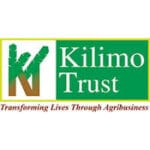AboutAgricultural Sciences
Agricultural Sciences is the study of the relationship between soils, plants and animals in the production and processing of food, fibre, fuel and other agricultural commodities that have an economic, aesthetic and cultural value.
The table below indicates the main topics in the Agricultural Sciences curriculum.
| 1. soil science |
| 2. Plant studies |
| 3. animal studies |
| 4. agricultural economics |
| 5. Basic agricultural Chemistry |
| 6. Basic Genetics and Biological Concepts |
| 7. sustainable natural resource utilization |
| 8. agro-ecology |
In agricultural sciences learners will:
- Develop an awareness of the management and care of the environment, natural resources and the humane treatment of animals through application of science and related technology;
- Develop problem-solving mechanisms within the contexts of agricultural production, processing and marketing practices;
- Be aware of the social and economic development of the society at large through personal development in commercial and subsistence farming enterprises;
- Become informed and responsible citizens in the production of agricultural commodities, caring for the environment and addressing social justice issues; and
- Be aware of agricultural indigenous knowledge and practices through understanding agricultural sciences in historical and social contexts.
Time allocation of agricultural sciences in the curriculum
The teaching time for Agricultural Sciences is 4 hours per week. requirements to offer agricultural sciences as a subject
Technical equipment and other resources required to offer Agricultural Sciences more efficiently as a subject are the
responsibility of the school.
- Each learner should have a textbook.
- The school should be equipped with a Agricultural Science laboratory where various practical work or experiments could be carried out or demonstrated.
Subject combination when offering agricultural sciences as a subject
it is strongly recommended that Agricultural Sciences be combined with mathematics, Physical Sciences and/or Life Sciences.
subject linkage
Agricultural Sciences is an integrated science. it combines knowledge and skills from Physical Sciences, Life Sciences, Social Sciences, Earth Sciences, Engineering, mathematics and Economics. This subject must be seen within the holistic science framework rather than as an isolated science.
Overview of topics
| topic | Content | |
| soil science | Grade 10 | The concepts of soilThe basic components of soilSoil minerals and rock formationWeathering processesThe main soil forming processes and factors |
| Grade 11 | The physical and morphological characteristics of the soilSoil textureSoil structureSoil moistureSoil poresSoil temperatureSoil profileSoil classification and evaluationThe chemical and colloidal properties of the soilSoil organic matter (living and non-living) | |
| Grade 12 | None | |
| Plant studies | Grade 10 | General classification, importance and economic value of plantsSuitability for crops based on the prevailing climatic conditions and their soil requirements Field cropsHorticultural cropsFodder cropsForests |
| Grade 11 | PhotosynthesisWater and nutrientsMineral nutritional requirementsThe fundamental minerals or elements needed by plants for optimal growth and production Organic and inorganic fertilizersMineral supplementation in plants and the analysis of plant mineral statusThe different methods of plant reproductionFertilizationFruit settingSeed germinationPlant improvement and biotechnologyPlant diseases and controlPlant pests and controlIntegrated pest management and biological controlPlant weeds and control | |
| Grade 12 | None | |
| topic | Content | |
| soil science | Grade 10 | The concepts of soilThe basic components of soilSoil minerals and rock formationWeathering processesThe main soil forming processes and factors |
| Grade 11 | The physical and morphological characteristics of the soilSoil textureSoil structureSoil moistureSoil poresSoil temperatureSoil profileSoil classification and evaluationThe chemical and colloidal properties of the soilSoil organic matter (living and non-living) | |
| Grade 12 | None | |
| Plant studies | Grade 10 | General classification, importance and economic value of plantsSuitability for crops based on the prevailing climatic conditions and their soil requirements Field cropsHorticultural cropsFodder cropsForests |
| Grade 11 | PhotosynthesisWater and nutrientsMineral nutritional requirementsThe fundamental minerals or elements needed by plants for optimal growth and production Organic and inorganic fertilizersMineral supplementation in plants and the analysis of plant mineral statusThe different methods of plant reproductionFertilizationFruit settingSeed germinationPlant improvement and biotechnologyPlant diseases and controlPlant pests and controlIntegrated pest management and biological controlPlant weeds and control | |
| Grade 12 | None | |
| topic | Content | |
| soil science | Grade 10 | The concepts of soilThe basic components of soilSoil minerals and rock formationWeathering processesThe main soil forming processes and factors |
| Grade 11 | The physical and morphological characteristics of the soilSoil textureSoil structureSoil moistureSoil poresSoil temperatureSoil profileSoil classification and evaluationThe chemical and colloidal properties of the soilSoil organic matter (living and non-living) | |
| Grade 12 | None | |
| Plant studies | Grade 10 | General classification, importance and economic value of plantsSuitability for crops based on the prevailing climatic conditions and their soil requirements Field cropsHorticultural cropsFodder cropsForests |
| Grade 11 | PhotosynthesisWater and nutrientsMineral nutritional requirementsThe fundamental minerals or elements needed by plants for optimal growth and production Organic and inorganic fertilizersMineral supplementation in plants and the analysis of plant mineral statusThe different methods of plant reproductionFertilizationFruit settingSeed germinationPlant improvement and biotechnologyPlant diseases and controlPlant pests and controlIntegrated pest management and biological controlPlant weeds and control | |
| Grade 12 | None | |
| topic | Content | |
| agro-ecology | Grade 10 | The concepts: biome, ecology, ecosystem, adaptation and ecological pyramidComponents of ecosystem (on ecological pyramid)The biomes of Southern AfricaThe grazing ecology and veld/pasture managementFarming systems that use Agro-ecological principles (organic farming, integrated farming, biological farming, alternative agriculture, etc.) Climate change or effects of different weather phenomenon |
| Grade 11 | None | |
| Grade 12 | None | |











